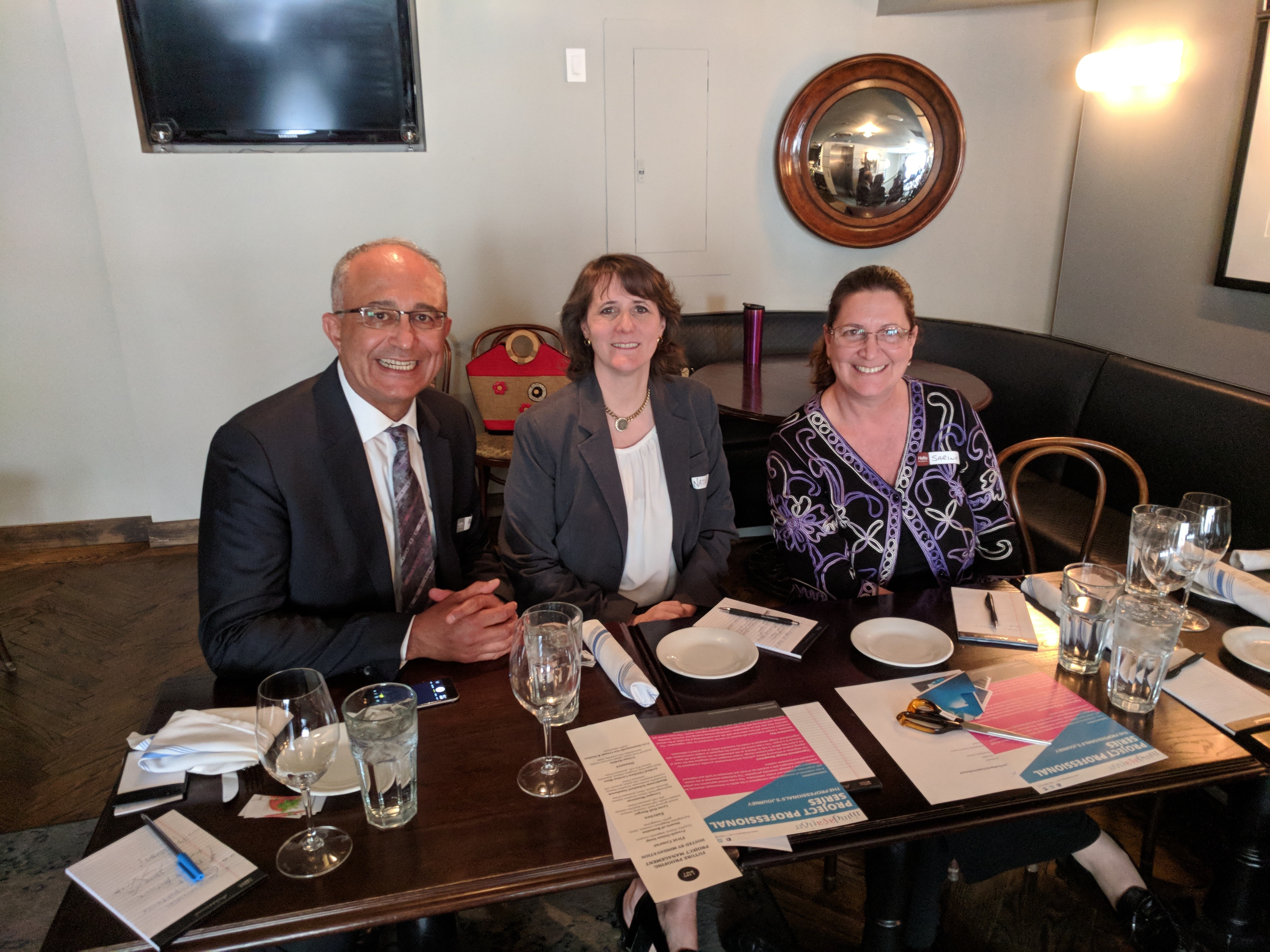Mindavation recently hosted a lunch event where three wonderful panel members shared with us their views on the ‘world of project management’ today:
- Al Zeituon: Global Business Strategist, Educator, Consultant, Futurist, and Speaker | PMI Global Board Director
- Sarina Arcari: PMP Vice President – Enterprise Program Management Office at Amtrak
- Natalya H. Bah: PMP, CEO Natalya H. Bah Consulting
As well as the panellists great insights, the professionals that attended shared their own insights to add to the growing body of discussion around this important topic.
I wanted to share with you some of the main ideas and relevant points that the discussion raised.
There is a growing understanding that the nature of project management is changing. One reason for this, is in response to organizations having more complex and demanding problems to solve and at an ever-increasing rate. Often at the heart of helping with the solutions are the project professionals. However, with the growing advent of smart software and stakeholders demanding deeper and more connected relationships the skills which traditionally Project Managers needed now need to be wider and include what have sometimes been called ‘soft skills’ but I prefer the term professional skills.
Initially, the discussion focused on the ‘new’ toolkit that Project Professionals require. Here are a few that we came up with:
- Organizational development and design
- Operational management
- Psychology
- Marketing
- Leadership
- Strategy
- Governance
- Emotional Intelligence
- Influence and persuasion
- Change management
I am sure that you can add to this list and please do in the comments section.
This last point (change management) was talked about in lots more detail. The conclusion being that we are all change managers because that is the nature of business and work today, and as Project Professionals, we need to be architects and leaders of the change. Every project requires a change to occur and if we don’t become experts in learning to lead change we may find ourselves sidelined by people who do.
Alongside this discussion was how important it is that everyone who works on projects (whether you are a qualified PM or BA or work in supporting roles a key skill is the ability to influence and persuade. You can’t ‘make’ change happen but you can influence it’s direction. This goes back to an earlier point about stakeholder management and its importance in the success or failure of a project. If you don’t have the positional power you need personal power in the form of influence skills.
Of course no discussion would be complete without the topic turning to the techniques of Project Management such as Agile, waterfall, scrum etc. Differing opinions were put forward ranging from they clashed with ‘traditional’ PM techniques
They were complementary to traditional PM techniques
That different tools and techniques are required depending on the nature of the project, the client and the environment and that this is part of becoming a seasoned Project Professional.


